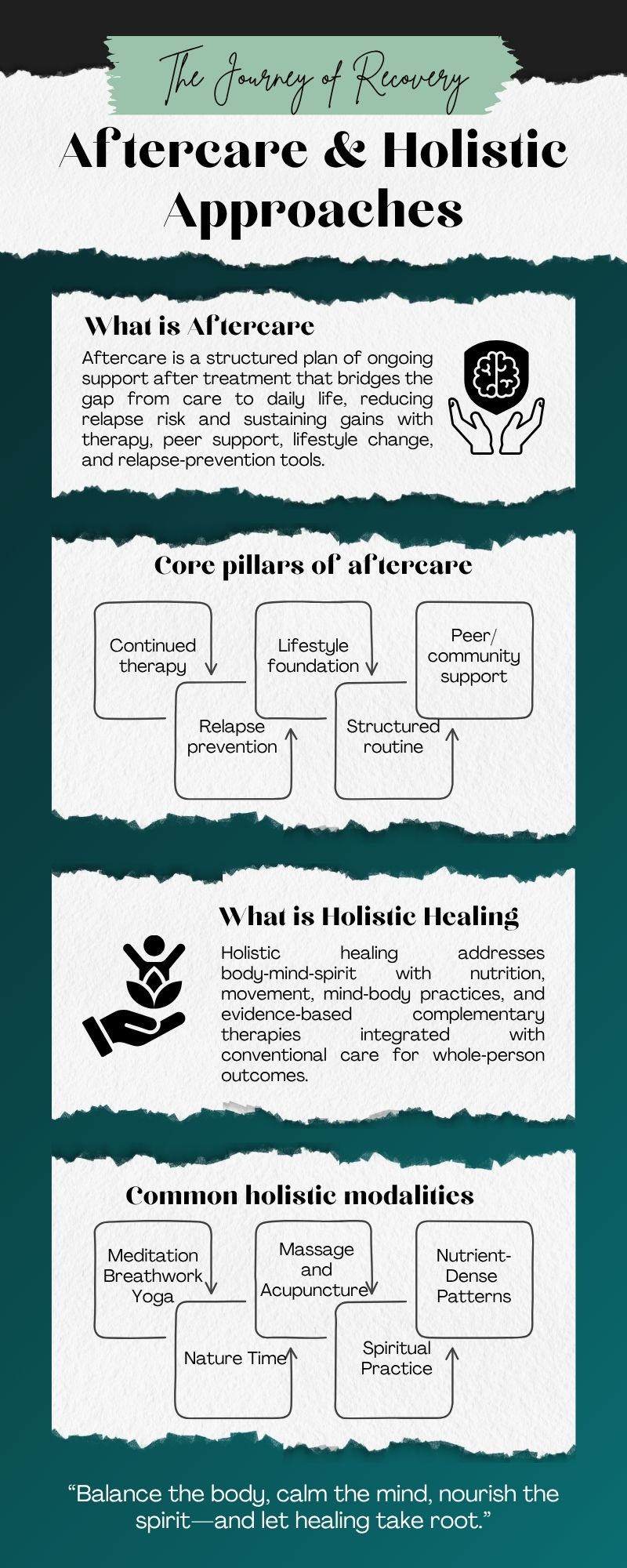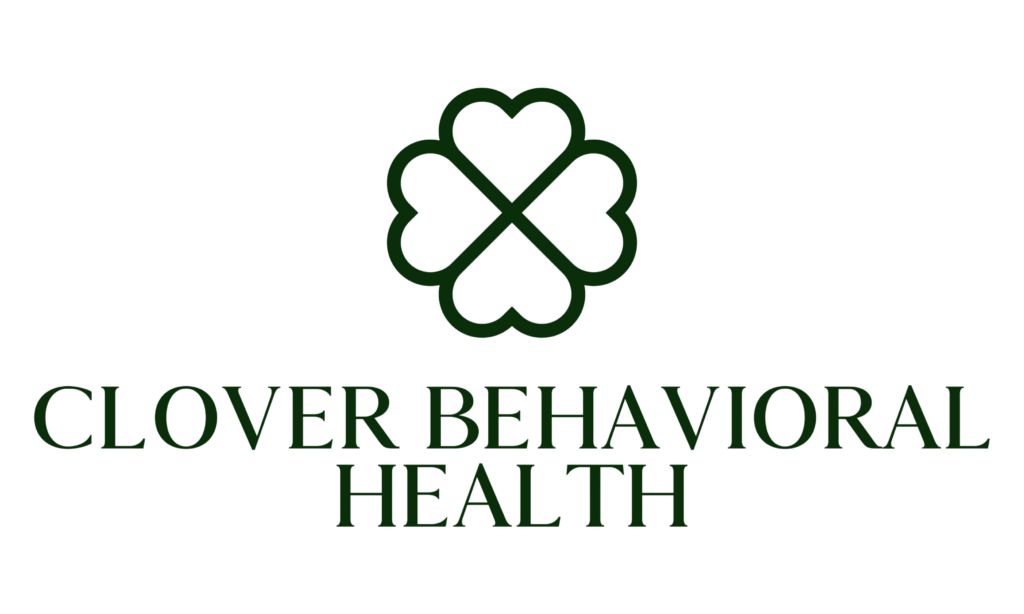Why Aftercare is Essential for Rehab Success
Have you ever finished a big challenge and thought, “What now?”
“Recovery is about more than just getting sober—staying sober is a whole different journey.”
According to recent data from the Substance Abuse and Mental Health Services Administration, people who complete aftercare after rehab are up to 50% more likely to maintain long-term recovery.
Aftercare isn’t a bonus—it’s a proven driver of real results.
In this blog, you’ll discover exactly why aftercare matters, how it works, and reliable steps you can take to make recovery last. Stick around; you’re about to gain tools for true, lasting success.
Understanding Aftercare in Rehab
After rehab ends, life rarely goes as planned. You might wake up feeling strong, yet by afternoon, old temptations stir. That’s why aftercare matters—it carries you across the bumpy road from treatment to normal routines.
At Clover Behavioral Health, aftercare isn’t an afterthought; it’s a routine. We shape support through check-ins, continued counseling, and the flexibility real life demands, especially for our Illinois neighbors.
Each step gives your new skills a fighting chance to stick. Without this safety net, slipping back into risky patterns is far too common.
So, pause for a second—are you investing enough in what comes after treatment?
Key Components of Effective Aftercare
Aftercare isn’t just a checklist—it’s your roadmap to real rehab success. At Clover Behavioral Health, we build these plans from years of helping folks in Illinois stay on track.
Start with Clear Goals
Set goals that feel achievable right away. Think small steps, like one meeting a week. This keeps the momentum going. Why? It turns big changes into daily wins. We guide you to measure progress simply.
- Specific targets: Aim for things you can track, like journaling moods daily.
- Time-bound wins: Set deadlines, such as joining a group within a month.
Therapy That Tackles Triggers
We rely on proven methods like CBT. These help rewrite negative thoughts. Sessions run weekly or as needed. They build skills to face stress head-on. Dual diagnoses? We address those too. Here’s what we see frequently here in Illinois.
- CBT basics: Spot triggers and swap them with healthy responses.
- Custom sessions: Tailor to your life, fitting work or family demands.
Support Groups and Healthy Habits
Connect with peers who understand your path. Groups like AA offer real talk and accountability. Add exercise or better eating. Eligibility is easy—post-rehab, you’re in. This cuts relapse risks sharply. What goals fit you best?
- Peer connections: Share stories to feel less alone.
- Lifestyle tweaks: Walk daily or eat balanced meals for energy.
The Impact of Aftercare on Long-Term Sobriety
Aftercare is what powers long-term sobriety beyond rehab. At Clover Behavioral Health, we see daily how continued support makes relapse far less likely. Research shows that aftercare can cut relapse risk by half. That’s real impact anyone can build on.
Why does it work? It makes healthy habits stick.
How Aftercare Transforms Recovery
- Strengthens daily routines and coping skills.
- Creates a reliable support network.
- Eases stress and anxiety during tough times.
- Reduces isolation, one of the biggest relapse factors.
With each step, aftercare turns short-term changes into lifelong progress—have you noticed where support helped your journey grow?
Overcoming Challenges with Aftercare Strategies
Challenges in recovery? Aftercare strategies tackle them directly for rehab success. Identify triggers early—maybe it’s a tough day at work. We teach techniques like mindfulness to stay grounded.
If cravings hit, medication management helps, as in our MAT programs at Clover Behavioral Health. Adjust your plan as needed; life changes, so should your support.
For example, add job training if unemployment stresses you out.
These steps turn obstacles into opportunities. Remember, it’s normal to face hurdles. What challenge worries you most right now?
Personalized Aftercare for Your Needs
Tailor aftercare to fit your life, and watch rehab success soar. In Illinois, we consider local factors like urban stress or family dynamics.
Our Clover Behavioral Health team assesses your stability through intakes. Benefits include customized therapy and community events. We even link to detox if required. This personal touch ensures you thrive.
Eligibility? Open to committed individuals. Why settle for generic when tailored works better?
Steps to Create Your Personalized Aftercare Plan
- Assess your current needs with a professional.
- Set specific, achievable goals.
- Choose therapies that match your style.
- Build in regular check-ins.
- Review and adjust every few months.
Building a Support Network
A strong support network keeps recovery moving forward—it’s like fuel for staying healthy. People do much better when they’re not alone, so we at Clover Behavioral Health encourage making real connections from day one.
Connect with Family and Friends
Open up to trusted family members about your goals. They provide emotional support and help with daily ups and downs.
- Emotional backing: Family and loved ones listen, encourage, and remind you of your progress.
Lean on Support Groups
Join a group like NA or AA—locally or online. Peer members relate to your struggles and keep you accountable.
- Shared experiences: Peers offer real advice and encouragement.
- 24/7 support: Forums and digital communities fill the gaps anytime you need help.
Professional Guidance
Therapists and mentors give expert input when challenges arise. Regular sessions rebuild trust and offer resources.
- Expert oversight: Professionals address tough times with helpful strategies.
Mentor Relationships
Mentors help guide you during setbacks, offer perspective, and suggest new tools for your journey.
- Guidance and accountability: Steady support from someone who’s walked the path.
In our experience, clients with good support networks are much more likely to stay sober and build strong routines that last. Who’s on your team?
Measuring Success and Adjusting Plans
Track your progress to keep rehab success on course. At Clover, we use tools like sobriety journals for honest reviews.
Celebrate wins, such as stable jobs. If something’s off, we adjust quickly—maybe amp up therapy.
Data from our Illinois programs shows 80% of engaged clients report better coping after six months.
Stay proactive with education on new skills. This approach adapts to twists. Ask: How do you measure your own growth?
Innovative Aftercare Tools We Use
At Clover, we know the right tools can move recovery forward. New technology blends with old-school support to make aftercare more powerful and personal.
Next-Level Tech in Action
- Mood-tracking apps:
Simple daily check-ins signal early trouble. - Virtual reality practice:
Face real-life triggers in safe simulation. - Telehealth therapy:
Get support wherever you are—no commute. - Wearables:
Monitor stress for fast feedback.
Building Effective Networks
- Family offers steady emotional support.
- Peer groups keep motivation strong.
- Mentors guide you through tough spots.
- Therapists provide expert advice tailored to your journey.

With these tools, our clients see faster progress—each connection and check-in makes lasting change feel possible every day.
Real-World Case Study: David’s Recovery with Aftercare
David’s journey shows the true power of aftercare. Five years after battling addiction, he credits his sustained recovery to a structured plan and ongoing support.
- Structured Routine: Daily therapy, group meetings, and wellness activities helped him build healthy habits.
- Safe Environment: Residential rehab kept him away from old triggers.
- Continued Support: After rehab, David relied on aftercare programs for accountability and growth.
- Outcomes: Today, David has completed a second degree and raises his daughter, thanks to the foundation laid by aftercare.
(UKAT – David’s Success Story, 2025)
Why Choose Clover Behavioral Health for Your Aftercare Needs
Ready to make aftercare your ally in rehab success? At Clover Behavioral Health in Illinois, we draw on over a decade of experience to create plans that work.
Our team of certified experts—therapists, counselors, and recovery specialists—has helped hundreds rebuild lives. We’ve earned trust through proven results, like our 80% long-term sobriety rate.
Plus, our firsthand experience with Illinois communities means we understand local challenges. Contact us at for a free assessment.
Let’s build your path together—what’s stopping you?























